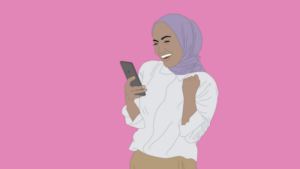Opposites attract: Not quite always the case with data
Two giants come together to collaboratively combat diseases using the power of technology. In theory, wonderful idea. In practice – train wreck.
I’m talking about the fiasco earlier this year involving the NHS and Google DeepMind, of course. They wanted to use machine learning to analyse images for signs of diabetes-related sight loss. What they neglected was the fact that when it comes to using personal data people are very precious about it. If you don’t properly outline how it will be used, then it will likely lead to a big backlash.
It doesn’t matter how good the cause or intention is. People want to know in uncertain terms where what and how their data is being used. And they won’t shy away from pulling out the Data Protection Act card if they have to.
2016 has certainly taught the government a lot of lessons. Bar the obvious ‘don’t assume anything (ahem Brexit)’, there is one lesson in particular that sticks out to me: how integral it is to properly outline how people’s personal data will be used.
Openness is the only way forward as we shift towards an ever-increasing digital world.
What has been an exciting step in the right direction is the Digital Economy Bill. The benefits that this data sharing strategy would bring are enormous; therefore the government need to tread carefully when executing it to avoid it crumbling to pieces before it even has the chance to get going.
Essentially the bill will affect how individual’s data is shared across the public sector, meaning they can use data to improve lives by developing government services. No more distributing needless letters to people. And more improving access to civil registration data like registers of births and death.
The current system works, to a point. But the government needs to stop the coasting by with the bare minimum. Improvement and a push for an updated data-driven system are needed.
Although some wouldn’t bat an eyelid at the revelation that their personal data is being used without their knowledge, the reason it caused such uproar to many is, of course, security concerns.
Who will have access to my data? How exactly will it be used? Who will be watching the watcher? All very good questions for people to be asking.
Perhaps those younger generations who are used to freely handing away swathes of their personal data won’t require as much reassurance. But, older generations will want these questions answered, and quickly.
For data sharing to become a success people need to feel like their data is in capable, safe hands. And this is an important lesson for government moving forward. Therefore safeguards need to be put in place. Concerns around security are central to this and will enable the UK to develop a data-driven economy – continuing to stay at the forefront of technological innovation.
We’ve made big strides to a data-driven government this year. 2017 will be a year where we make further leaps and bounds – this time with the right strategy in place.
Latest content
-

Zaizi founder Aingaran Pillai named chair of techUK’s Security and Public Safety SME Forum
Published on: 2 December, 2025 -

Zaizi ‘Highly Commended’ for Best Employer at 2025 Computing Women in Tech Excellence Awards
Published on: 28 November, 2025 -

Modernising government for AI: What key challenges do departments face?
Published on: 6 November, 2025 -

PICTFOR roundtable: Is regulation a handbrake or a catalyst to public trust and innovation in AI?
Published on: 30 October, 2025
